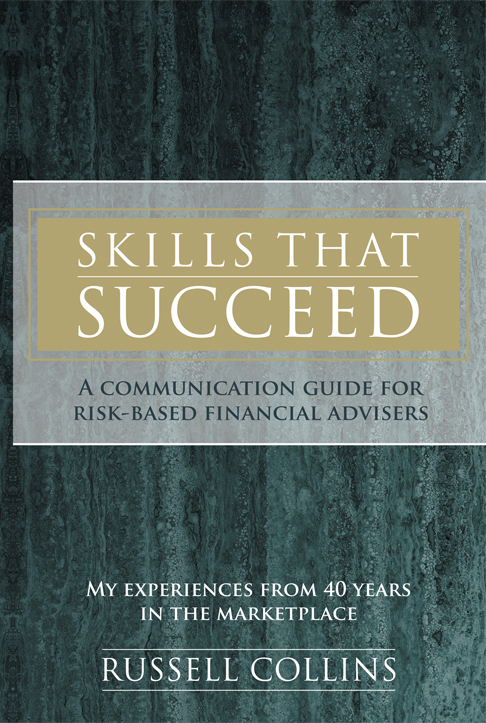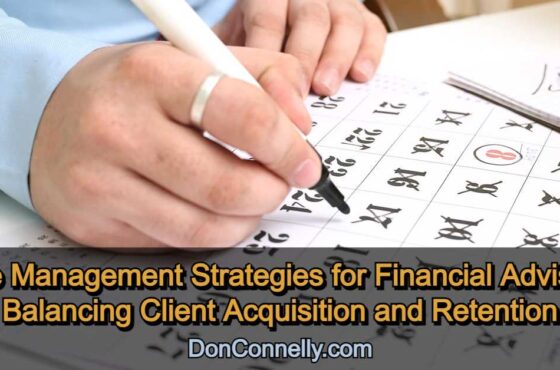How to Increase Your Life Insurance Sales through Preparation
 “Preparation will make the dull person appear bright and the bright person appear brilliant!”
“Preparation will make the dull person appear bright and the bright person appear brilliant!”
Louis Nizer “My Life in Court” 1961
I am of the opinion that one of the major stumbling blocks for new (and, surprisingly, even more experienced) Financial Advisers in conducting successful initial meetings with prospective clients (as well as review meetings with existing clients) is the lack of proper preparation.
In recent years Dealer Groups have introduced a one-size-fits-all templated fact finder document to be used by their advisers in both initial and ongoing discussions with prospective or existing clients. In terms of compliance requirements, the dealer group needed to protect itself from possible future litigation down the road and therefore many participated in designing the questions that their advisers could ask.
From my experience, I believed that there were two problems with this approach.
Firstly, the document does not take into account the individual character or skills of the adviser and totally overlooks the long-standing principle in any form of selling that people buy people.
Secondly, the document takes away the need for advisers to individually prepare for each initial meeting, resulting in their just showing up for the meeting, opening up their fact finder document and asking questions which are usually clinical in nature and the devoid of any form of emotion.
If advisers use the same templated one-size-fits-all fact-finding document for every initial interview and therefore don’t see the necessity for individual preparation, how could they separate themselves from their competitors? No two interviews are ever alike, because no two people are alike. Differences sell, similarities don’t!
In training advisers in soft skills over the last 20 years I can conclusively state that good preparation not only separates the effective interviewer from the ineffective one but it dramatically increases the opportunity of building effective long-term relationships from the initial meeting.
This can be achieved by introducing a series of questions and concepts into your meetings which I believe will allow you to take a quantum leap in your conversion of prospects into clients, as well as continuing to meet the ongoing insurance needs of your existing clients.
Remember, the primary purpose of each meeting is to develop a relationship and, secondarily, to gather information.
This meeting is where the biggest sale of all is made – the sale of you. People buy your advice first and your product last. When they know, that you know, that you know what you’re talking about, then the most important sale of all has been made.
So, let’s start with my sharing with you a “preparation” process which enabled me – and over the last two decades, many of my mentees – to control each individual meeting from the outset so that rather than it becoming a Q&A-type meeting, it developed into a relationship-development opportunity.
#1. Prepare a range of human-interest questions
The process starts with simply preparing a range of human-interest questions that will assist people to think about the biggest issues of the future, including the consequences of death and disability. And you do this by asking penetrating questions, listening for the answers and then recording the answers in an orderly manner. A penetrating question is one that causes the prospect or client to think before answering, as opposed to questions that simply require a yes/no answer.
I found that in order to take control of the meeting from the outset it’s important to have a set format of questions, so that each set of questions leads into the next, and so on. In other words, there is an obvious “flow” in the introduction of the questions.
Here is the format that worked best for me.
- Job-type questions = enjoyable? work ethic? career path?
- “personal” type questions – who they are? what’s important to them?
- “insurance”-type questions — how they feel about protecting their most valuable asset in relation to self/family?
#2. Rehearse
A major part of the preparation process relates to mental rehearsal. When meeting with people for the first time you are actually preparing for a job interview – you’re being interviewed as their possible trusted adviser. Therefore, mental rehearsal motivates you to relate to that person, it’s not their job to relate to you.
So how do you rehearse mentally? Well, in my case I went through a list of questions that I had developed over the years and which enabled me to establish a position of being able to give advice in that first meeting. In other words, many times my questions were answered with a “what do you mean-type comment” which enabled me to expand on the reason behind the question.
So, I selected from the list those which I felt were applicable to the particular upcoming meeting, depending on the age and position of the person. Through this exercise I was both thinking of the new prospect and what I was going to say to him or her well before we had our first face-to-face meeting. In other words, in reviewing the questions I would anticipate the regular answers I received and how I developed my explanations to those answers.
Then when I actually got to ask those questions, that was in effect the second time that I had touched on them. This enabled the questions to just roll off my tongue in the form of a conversation, rather than giving the appearance that I was conducting a Q&A -type meeting.
In other words, having rehearsed the questions I didn’t have to constantly refer to my fact-finding document to remind myself of the next question. Also, if they raised something with me that related to a question I had located elsewhere in my document, because of the mental rehearsal I was able to go straight to that particular question, adequately answer it, and then return to where I had previously left off. This diversification indicates to people that you are well prepared!
Tap into the 40+ years of experience Russell Collins shares in his book on the importance of developing communication skills which people will both understand and act upon; skills that will enable you to achieve an extraordinary level of success and will give you the opportunity to make a difference in people’s lives on a daily basis.

Order your audio book copy today!
Available also in e-book format worldwide or in hard copy format in Australia. See available formats.



